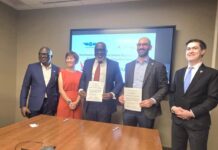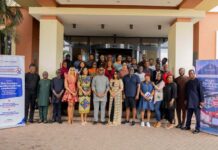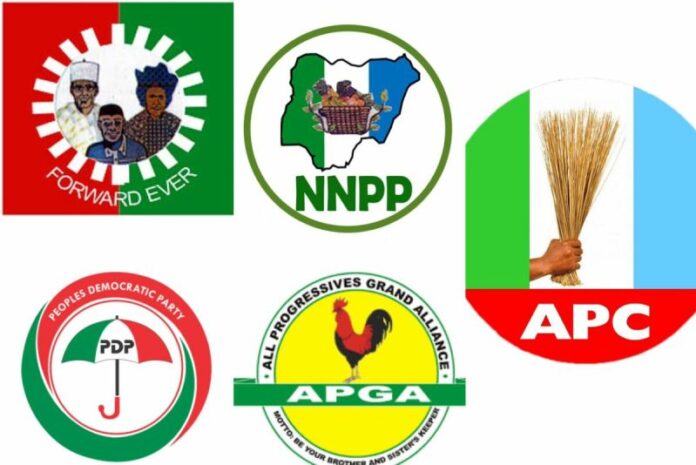Olalekan Adetayo
Nigeria currently operates a four-year election cycle. This means that elections are held every four years to fill vacant or soon-to-be-vacant positions, as political office holders are allowed a four-year tenure—renewable once in the case of the president and state governors.
Pre-election periods in Nigeria are always intense. Whether during general or off-cycle elections, the stakes are typically high.
These periods are marked by alignment and realignment of political forces. Politicians scramble to position themselves strategically—no one wants to be on the losing side. Opposition figures seek ways to join the ruling camp or develop strategies to secure victory, while incumbents fight to retain power.
During such tense periods, friendships are tested. Political associates become adversaries, and in some cases, even family members turn against each other. There are countless examples of siblings born of the same parents who become bitter rivals because they belong to different political camps.
What’s fascinating about the current political landscape is how early the drama has started. Though the 2027 general elections are still two years away, real politicking has already started. Political rallies are taking place—albeit under various guises. These gatherings may be tagged as project inaugurations, receptions for defectors, empowerment programmes, voter sensitisation events, or alliance meetings. But the underlying objective is clear: to solicit votes.
At such events, incumbents highlight their achievements and outline plans in an attempt to justify continuity. On the other hand, opposition parties present a laundry list of reasons why a change in leadership is necessary.
Ordinarily, political campaigns should commence only after the Independent National Electoral Commission releases the official election timetable. The Electoral Act clearly defines the campaign window, yet political actors are already jumping the gun.
This premature campaign activity has not gone unnoticed. Just last month, INEC cautioned political parties and candidates against early electioneering, describing such actions as violations of the Electoral Act. The Chief Press Secretary to the INEC Chairman, Rotimi Oyekanmi, said the commission had not yet released the official timetable or schedule of activities for the 2027 polls.
“The Independent National Electoral Commission has not released the timetable and schedule of activities for the 2027 general elections. To that extent, party primaries have not been held and no political party has nominated candidates for the next general election,” Oyekanmi said. He cited Section 94(1) of the Electoral Act 2022, which provides that campaigns by political parties may only begin 150 days before polling day and must end 24 hours before voting commences. He further referenced Section 95(1), which mandates that campaigns must be conducted in accordance with INEC regulations.
“Section 94(1) of the Electoral Act 2022 stipulates that the period of campaigning in public by political parties for an election shall commence 150 days before polling day and end 24 hours prior to that day. Section 95 (1) of the Act also states clearly that a candidate and his or her party shall campaign for an election in accordance with such rules and regulations as may be determined by INEC. To that extent, while Nigerians have the right and liberty to engage in political discussions and express their views on the next general election, any open campaign or canvassing votes for the 2027 general election is not only inappropriate but a violation of the Electoral Act,” he said.
Oyekanmi also noted that the commission had already addressed the issue at its most recent quarterly consultative meeting with political parties. “The attention of all political parties in Nigeria was drawn to this situation at our last quarterly consultative meeting and the commission expects full compliance with the law,” he added. Although that was said early last month, no visible change has been noticed. Rather, subtle campaigning has only intensified across the country.
What exactly is driving this early campaign fever? A major driver of this early campaign season is the ruling All Progressives Congress and its push to secure a second term for President Bola Tinubu. Almost every wing of the party has endorsed the President for re-election, though he is still in the second half of his first term. To justify this, government officials and party loyalists constantly cite statistics to show that the administration is improving the lives of Nigerians.
Naturally, the opposition is not sitting idly by. Figures like former Vice President Atiku Abubakar and former Governor Peter Obi are already positioning themselves, reviving the familiar “rescue Nigeria” narrative.
Social and traditional media are playing significant roles in amplifying the campaign noise—long before the official schedule permits it. But in all this, the situation is coming at a cost. The average Nigerian is the real loser.
Early politicking diverts attention from governance. Issues like insecurity, inflation, and the energy crisis suffer neglect. Ministries and government agencies, rather than focusing on service delivery, begin to align with political interests. Citizens bear the brunt as governance takes a back seat.
What dominates national discourse now is not policy, but alliances and power realignments. One of the possibilities of an Atiku–Obi bloc, and whether the so-called “third force” is genuinely new or just old faces in new clothing. There is the internal APC division, particularly between northern and southern factions, possibly fuelling rumours of a possible replacement of Vice President Kashim Shetimma. There is also the PDP’s zoning arrangement, and even whispers of a one-term presidency becoming a key bargaining tool.
Politicians often fail to realise that starting too early doesn’t guarantee victory. We’ve seen this play out in previous elections. When campaigns begin too early, they risk overexposure—voters become fatigued by recycled promises and hollow slogans.
Whether the campaigns start early or late, Nigerians must remain focused. They should demand that campaigns address key issues: job creation, economic stability, and national security. Nigerians should not allow campaigns to degenerate into ethnic or religious baiting—tendencies that are already rearing their heads. Another critical concern is campaign financing. Will we see the usual lack of transparency, or will parties be held accountable for their sources of funding?
In conclusion, governance must not be sacrificed on the altar of 2027 politics. Citizens must demand accountability now—not just empty promises for the future.
In his timeless novel, Things Fall Apart, Chinua Achebe wrote, “Eneke the bird says that since men have learned to shoot without missing, he has learned to fly without perching.” Nigerians can borrow a leaf from Eneke. If politicians are starting this early, then citizens must also begin early—organising, questioning, and preparing to hold leaders accountable at the ballot box.
Punch





























































